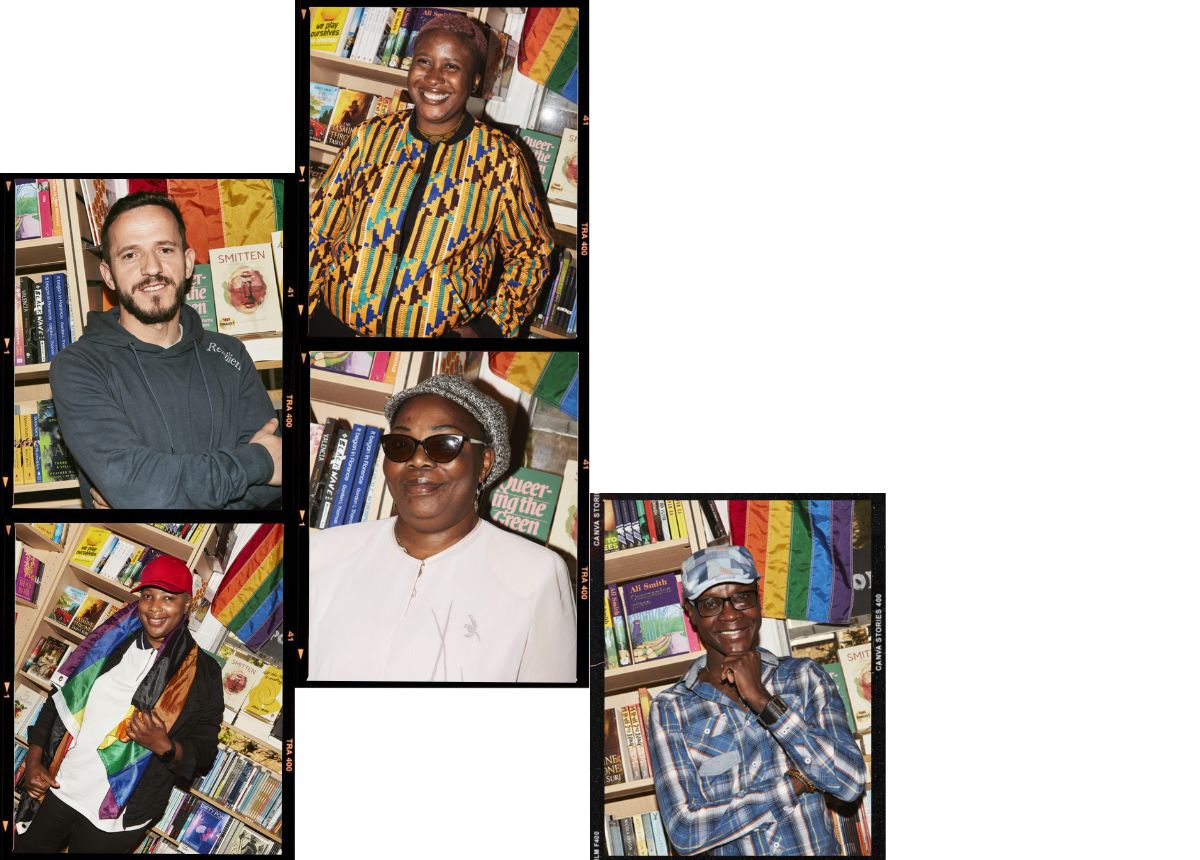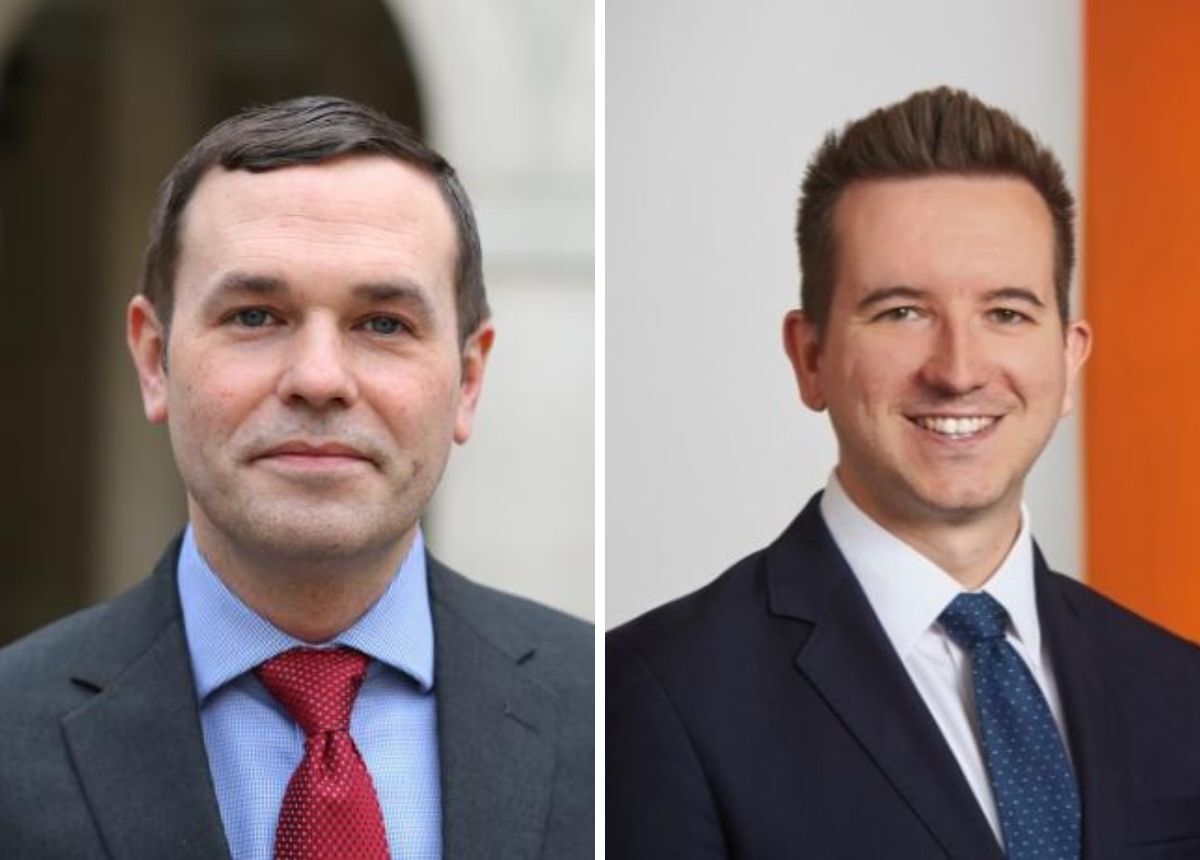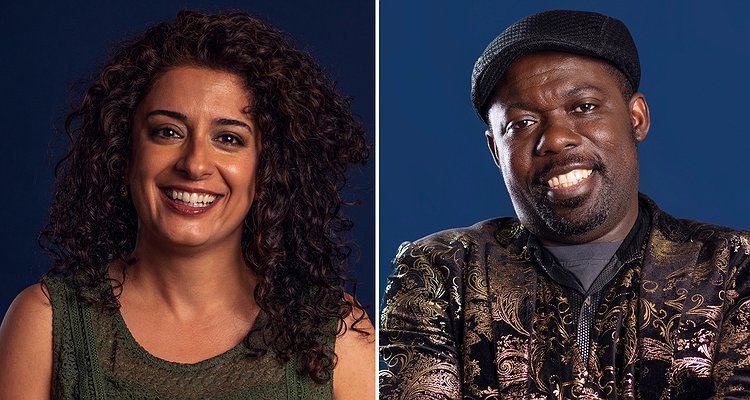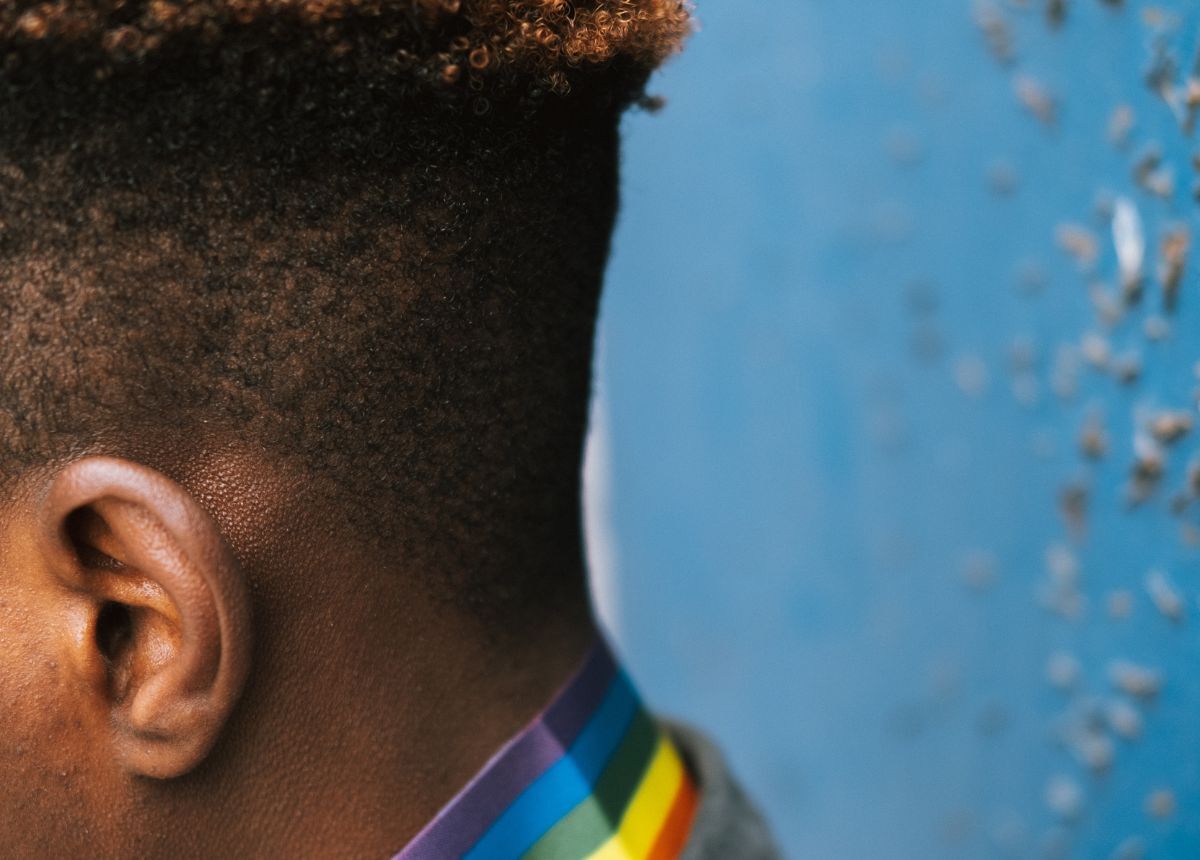World Suicide Prevention Month: the mental health crisis in immigration detention
***Warning: The following article marks World Suicide Prevention Month, which takes place every September. As such it contains themes of death, self-harm and severe mental health issues. Please take care, and do not read on, if you might find this too difficult. If you are an LGBTQI+ person seeking asylum and would like to access emotional support, please contact us.
This World Suicide Prevention Month we want to shed light on the mental health crisis in immigration detention. People seeking asylum, or going through our immigration system, can be held in detention without warning, and without knowing when they will be released. Being taken away from friends and family, and held in prison-like conditions, significantly impacts a person’s physical and mental health. In fact, since 2000, 30 people have died by suicide whilst in immigration detention in the UK.
In Colnbrook detention centre there were 41 recorded incidents of self-harm and 14 people were under constant watch for self-harm between September 2021 and February 2022. 25% of the people held there in 2021-22 said they felt suicidal, and more than three quarters were depressed, according to a report by His Majesty’s Inspector of Prisons. That same report identified there had been insufficient safeguards against placing people who were suicidal in detention.
These problems are not new. In 2018, The Guardian reported that on average, 2 people per day attempt suicide whilst in immigration detention. In late 2020, after the government announced charter flights would remove people to other countries, the risk of suicide in immigration detention rose to “unprecedented levels” at Brooke House detention centre, according to its Independent Monitoring Board.
Current government policy is having a similar effect. Earlier this month, Medical Justice, an organisation which supports the health and legal rights of people in immigration detention, warned that this government’s policy to send people arriving in the UK to Rwanda is damaging people’s health whilst in detention. Their evidence shows the threat of removal has exacerbated anxiety, depression, and post-traumatic stress disorder, and caused fear, uncertainty, and loss of hope. It has also lessened some people’s resilience to existing trauma. For some, this means an increased likelihood of self-harm and suicide.
LGBTQI+ people in detention are especially at risk. Many will have fled persecution and are already trying to cope with experiences of trauma from their past. In detention, they are forced to relive that trauma and to do so completely alone, without specialist support. Many then experience LGBTQI-phobic bullying and abuse in detention, which compounds their existing trauma. Often, they try to hide that they are LGBTQI+ in order to stay safe. It’s reminiscent of the situation from which they have fled. This all has a huge impact on their mental health and can drive many to self-harm and suicide.
That these centres are particularly damaging for LGBTQI+ people, is highlighted in our joint report with Stonewall, No Safe Refuge. The people we spoke to stressed the deterioration of their mental health whilst in detention. Many self-harmed, couldn’t sleep, or stopped eating. Some attempted suicide and knew of other people in detention who died by suicide.
“I would have preferred to take my own life than be in here.
It is so painful to be stigmatised and unable to disclose my identity.
You would prefer to be anywhere than this cage of darkness.”
Mukasa from Uganda, No Safe Refuge
It is clear these centres are not safe for anyone. Being detained puts many people who are often already traumatised, at even greater risk of poor mental health and suicide. This is especially true for LGBTQI+ people for the reasons set out above.
Moreover, no-one should be held in immigration detention without knowing when they’ll be released. The uncertainty of indefinite detention is a huge part of what makes it so damaging. Research shows that mental health worsens the longer the period of detention. As the government’s own guidance states that 28 days is long enough to decide whether a person should be removed from the UK, it is wrong to detain anyone longer than this.
That’s why we’re campaigning for an end to LGBTQI+ detention and a time limit on all detention. You can support us now by signing your name here.
There is #NoPrideInDetention.
Rainbow Migration appoints a new Chair and a new Secretary
We are pleased to announce the appointment of a new Chair of Trustees, Scott Addison (left) and a new Secretary, Charles Bishop (right).
Scott Addison has been a trustee since 2018. He is a marketing and communications professional with more than two decades of international experience developing and executing communications and reputation management programmes for organisations across the corporate, legal, accounting, financial services and technology sectors. At Rainbow Migration, he led our rebranding strategy process, which brought a wide range of positive feedback from the refugee and LGBTQI+ sector and beyond.
Charles Bishop is a barrister at Landmark Chambers specialising in public and planning law. Prior to starting at Landmark, he worked at the Immigration Law Practitioners' Association and Wesley Gryk Solicitors. He previously volunteered at Stonewall Housing and the Anti Trafficking and Labour Exploitation Unit. He joined the board of trustees in November last year.
Leila Zadeh, Executive Director at Rainbow Migration said, “we are delighted to have Scott as our new Chair of Trustees and Charles as the new Secretary. Both of them bring a wealth of experience and expertise and have already made significant contributions as board members”.
Scott Addison said, “I am honoured to become the Chair and I look forward to building on the fantastic achievements of the last three decades for LGBTQI+ couples and people seeking asylum. With recent, regressive changes in asylum law and policy, we are resolute in our determination to do everything we can to make sure LGBTQI+ people are treated kindly and with dignity, and can live safely in the UK.”
Charles Bishop, said, “I am delighted to be taking on the role of Secretary at such a pivotal time and I look forward to working with the staff and trustee team in the years ahead.”
We say goodbye and thank Bojana Asanovic and Jackie Peirce, our outgoing Chair and Secretary, for their many years of service, immense hard work, outstanding dedication and contributions to Rainbow Migration. These changes come as part of Rainbow Migration’s longer-term succession and inclusion planning, which will include diversifying the trustee board.
A chance to build a kind and caring system for LGBTQI+ people seeking asylum here
Innocent grew up in Rwanda and came to the UK 20 years ago to start a new life free from harm here. In Rwanda he routinely faced bullying and abuse at school. To make this stop, he even tried to change the way he walked and talked, “but nothing I did seemed to make things better”, he says.
Like him, many LGBTQI+ people facing persecution in their countries of origin decide to come to the UK seeking to rebuild their lives free from abuse and discrimination. And supporting people who need help is the right thing to do.
However, by making a deal to send people arriving in the UK to Rwanda to have their asylum claims processed there, Priti Patel and Boris Johnson have sent a message that anyone who attempts to create a safe life for themselves in the UK will instead be punished.
This week, the High Court is hearing a challenge to the lawfulness of this policy, and Liz Truss has become the new Prime Minister.
We won’t know the judge’s decision until the end of October, but with new leadership comes an opportunity to leave Boris Johnson’s and Priti Patel’s cruel legacy behind, to scrap this dehumanising deal and to build a kind and caring asylum system that welcomes people seeking safety in the UK.
Nobody should be forced away, but evidence shows that LGBTQI+ people, like Innocent, are particularly at risk in Rwanda. In its Equality Impact Assessment for the policy, this government accepted that investigations pointed to ill treatment of LGB people, and that trans women can face torture or inhuman or degrading treatment or punishment.
The UNHCR expressed concerns about discrimination towards LGBQTI+ people who apply for asylum in Rwanda, “including the fact that some LGBTIQ+ persons are denied access to asylum procedures.”
On top of that, Rwanda is a country from which LGBTQI+ people flee because they are persecuted for their sexual orientation and/or gender identity. In fact, we have provided support to LGBTQI+ people from Rwanda.
Instead of punishing people seeking asylum here by sending them away, this new government has an opportunity to start over and to create a kind and caring asylum system.
As Innocent says, “why can’t the Government protect the rights of LGBTQ+ people seeking asylum who would have a chance to rebuild their lives in the UK?”
Here are a few things you can do today:
- You can donate to Detention Action to support their legal challenge and campaign against Priti Patel's plan to force people seeking asylum onto planes to Rwanda.
- You can also support Bail for Immigration Detainees' Rwanda Project, which helps people facing banishment to Rwanda apply for immigration bail.
- This government is detaining people that they plan to put on a one-way flight to Rwanda. Add your name to our campaign to stop the detention of LGBTQI+ people and to call for a 28-day time limit on all detention.
3 things our new PM could do to help LGBTQI+ people seeking asylum in the UK
With Liz Truss replacing Boris Johnson as Prime Minister today, we look at what she could do right away to support LGBTQI+ people in our asylum and immigration system.
There is no doubt that recent government policy and legislation have put the lives of LGBTQI+ people at even greater risk. The Nationality and Borders Act has made it harder for people fleeing persecution to receive protection here, whilst the Rwanda plan threatens to send them thousands of miles away to a place where LGBTQI+ people face violence and discrimination.
Boris Johnson’s government has also overseen a sharp rise in the number of people held in immigration detention in the last year, adding to his legacy of cruel immigration practices.
But a new Prime Minister means there is a chance for a change of direction. We hope that Truss, former Secretary of State for Foreign, Commonwealth and Development Affairs, Minister for Women and Equalities, and a supporter of equal marriage, will reverse the downward trend, and halt the deterioration of rights for LGBTQI+ people seeking safety here.
So here are three things Liz Truss could do to help LGBTQI+ people in the UK seeking asylum:
1. End LGBTQI+ detention
Immigration detention is unjust and inhumane. It separates people from their families and seriously damages their mental and physical health. For LGBTQI+ people, it can be particularly dangerous as they face bullying, harassment and abuse. The UK is the only country in Europe where people can be detained indefinitely, with no idea when they might be set free.
Our No Pride in Detention campaign calls for an end to LGBTQI+ people being held in detention, and a 28-day time limit on all detention. These reforms are urgently needed to limit the damage of this harmful, unjust and expensive system.
If you agree that our new Prime Minister should act now and end LGBTQI+ detention, please tweet Liz Truss today.
2. Scrap the Rwanda plan
In April 2022, the government announced plans to send people arriving in the UK to Rwanda to have their asylum claims processed there. Although so far, the policy has been held up by legal challenges, the government is still planning flights for this year.
Rwanda is not safe for LGBTQI+ people: they are not legally protected, and are subject to entrenched discrimination, violence and abuse, often from security officials. In the past Rainbow Migration has even supported LGBTQI+ Rwandans seeking safety in the UK.
Innocent Uwimana, a gay man from Rwanda, told us how dangerous it is for LGBTQI+ people there and urges the government to ditch the proposal.
“Being a sexual minority in Rwanda means living
in terror and violence.” Innocent Uwimana
Liz Truss has backed the catastrophic scheme so far, but she must scrap it and welcome asylum applications made in the UK instead. Banishing people thousands of miles away presents a real and present danger to anyone seeking asylum in the UK, and especially LGBTQI+ people.
3. Reverse the changes to the standard of proof for asylum claims
How would you prove your gender identity or sexual orientation if a total stranger asked you to? Providing evidence that you are LGBTQI+ is a huge obstacle to overcome.
The new Nationality and Borders Act places unreasonable expectations on LGBTQI+ people seeking asylum by setting an even higher bar to “prove” their sexual orientation and/or gender identity, and therefore increasing the likelihood of LGBTQI+ people being refused asylum.
LGBTQI+ people fleeing persecution might have spent their entire lives hiding who they are for their own safety. The only evidence some will have is their own word.
Proving sexual orientation, gender identity and expression, or sex characteristics, is difficult and distressing, and passing a law that made it harder was heartless. Raising the standard of proof means hundreds, or even thousands, of LGBTQI+ people could be returned to countries where they face torture, imprisonment, or death.
There are many points in the Nationality and Borders Act which need withdrawing but reversing changes to the standard of proof for asylum claims is urgent and could prevent the loss of LGBTQI+ lives.
Changes on applying to asylum in the UK

Recently the Nationality and Borders Act came into force which bring in some changes to the asylum system. Our ‘How to apply for asylum’ guide has now been updated and here is what you need to know if you are seeking asylum in the UK.
From the 28 of June 2022, people who have been recognised as refugees in this country will be separated into two groups:
Group 1: Those who were able to travel directly to the UK and who claimed asylum “without delay”, i.e. as soon as reasonably practicable. If they did not have permission to enter or be in the UK at the time they claimed asylum, then they must also show “good cause” for their entry or presence here.
Group 2: Those unable to meet the conditions for Group 1 status.
People treated as ‘Group 2’ will have a shorter form of leave and they will also be penalised with the lesser form of status if the Home Office deems them to have delayed in claiming asylum.
Those treated as ‘Group 1’ are granted the same form of status as before the Act, which is five years of leave following which they can apply to live in the UK permanently. However, those treated as ‘Group 2’ will be granted two and a half years of leave at a time, and can only apply to stay permanently after ten years.
We are here to help you navigate these changes and we have made sure to update the English version of our ‘How to apply for asylum’ guide accordingly (the guide in other languages will be updated soon). If you have questions, please get in touch at hello@rainbowmigration.org.uk
A note from our Legal and Policy Director, Sonia Lenegan:
Delays in screening interviews is an issue that we have been concerned about since last year, after many of our service users reported delays of up to 20 weeks from first contact with the Home Office to being able to register their asylum claim.
Olivia Blake MP kindly put in a written question on our behalf in May, asking what the position would be for people who had contacted the Home Office to say they wanted to register an asylum claim prior to 28 June 2022. It was confirmed on 24 May 2022 in the response to the written question that these people would be treated as having claimed asylum before the implementation of the Act. This means they will not be given ‘Group 2’ refugee status. The Home Office published guidance on 28 June 2022 that also confirmed this was the position, however at this time the new rules were already in force.
As we had managed to get earlier confirmation of the position, in the last days of June, we called everyone who had recently made contact with us to encourage them to start their asylum claims before 28 June, ensuring that as many people as possible were able to avoid this particular punishment under the Act.
Online focus group participants wanted: LGBTQI+ asylum communications messages
***This focus group recruitment has now closed, thank you for your interest. We’ll get in touch soon.***
We are carrying out research into how we can improve our communications messages. We want to talk clearly about the particular barriers and discrimination LGBTQI+ people who are seeking asylum face, and how our solutions might inspire more people to support our work.
Are you a UK resident who
- is LGBTQI+ or an ally?
- would like to give feedback on how we could improve how we talk about the particular barriers and discrimination LGBTQI+ people seeking asylum face?
We particularly welcome participants who have lived experience of the asylum system.
Please come along to one of our one-hour online focus groups. You will receive a *£20 One4All voucher for taking part.
To find out more and to register your interest please complete the form.
* We advise anyone who receives welfare benefits to seek expert, personalised advice before accepting a voucher for participation in a focus group to ensure that receipt does not negatively affect any payments you are entitled to receive.
We have won an Attitude Pride Award!
We’re proud to announce we have won an Attitude Pride Award for our work supporting #LGBTQI+ people seeking asylum.
The Awards celebrate the most outstanding people from the LGBTQ+ community who have used their platform to shine a light on queer representation or turned a personal hardship into an opportunity to highlight inequality.
We join illustrious company, as previous winners include those who organised the first Pride Parade in the UK, mental health awareness campaigners, and the activists behind the same-sex marriage legislation in Ireland.
Thank you so much for this award, and to everyone who helps maintain our vital service for LGBTQI+ people in the immigration system!
"I fled Rwanda due to homophobia - I fear for gay refugees being sent there."
Innocent Uwimana is a gay man from Rwanda who fled to the UK twenty years ago. He told us and Metro his story. This is a summary, but you can read the full article here.
Innocent came to the UK as a 16-year-old to escape rampant homophobia in Rwanda. He is appalled that the government plans to send LGBTQI+ people who come to the UK seeking safety, to Rwanda, a country which does not protect the rights of LGBTQI+ people.
Innocent was physically abused by classmates. He was regularly violently attacked. He tried to change and fit in, yet the bullying only got worse. He turned to a local priest for guidance but was told he was going to “burn in hell” because of his sexuality.
“Having experienced the discrimination faced by LGBTQ+ people – or those perceived to be sexual minorities in Rwanda – I am shocked that the UK would deport people from our community there.”
He knew he had to leave Rwanda to live safely as a gay man. After losing much of his family in the Rwandan genocide in 1994, Innocent decided to come to the UK.
Whilst Rwanda has made great strides since the war, LGBTQI+ people are not protected. Illegal arrests, false charges, and detention of LGBTQI+ people are common in Rwanda. LGBTQI+ people who ‘come out’ face harassment in places of work, and discrimination in the job and housing markets. They are significantly more likely to be homeless and unemployed. Fearing rejection from their family and wider society, many marry someone of the opposite sex to keep themselves safe.
Once he came to the UK, Innocent learned to accept himself as a gay man, and now leads a “happy, normal life”. Innocent experienced numerous violent, homophobic attacks as a teenager in Rwanda, and he says the situation is no better for LGBTQI+ Rwandans today. The country is not safe for LGBTQI+ people, and Innocent urges all human rights defenders to oppose the government’s plan.
We are hiring: Legal and Support Services Assistant
**This opportunity has now closed**
We are recruiting a Legal and Support Services Assistant to act as a first point of contact for the charity and assist the legal and support services.
We have been supporting LGBTQI+ people through the asylum and immigration system and campaigning for their rights since 1993. We now have an opportunity for a Legal and Support Services Assistant who will help ensure smooth delivery and monitoring of our services. You will be the first point of contact for new service users and play a key role in providing the information they need and allocating to the relevant services.
This role will receive full training and support as required to deliver your responsibilities:
- Provide admin support for the legal and support services teams
- Answer calls and emails
- Make appointments for service users or signpost them to other organisations
- Organise monthly legal advice sessions
- Input data onto our Salesforce database
- Write minutes for legal and support service team meetings
- Assist with running events (e.g. Christmas party)
- Assist with preparations for training and presentations
Our vision is a world where there is equality, dignity, respect and safety for all people in the expression of their sexual orientation or gender identity. Our values are:
- Safety: We believe everyone should be safe from persecution and safe to be themselves. We strive to create a safe workplace culture, and we place importance on the wellbeing of everyone involved with Rainbow Migration.
- Integrity: We are thorough and honest in everything we do, and we take responsibility for our actions. We want to be accountable to our communities and those who support us.
- Belonging: We welcome and include all LGBTQI+ people, and we celebrate and value their range of experience in terms of gender, religion, race, age, disability status and class. We try to remove obstacles to participation, champion equality and promote a sense of family or home through our services.
- Respect: We believe that every person is equal and deserves the same level of courtesy, care, and attention. We respect the rights, wishes and feelings of our service users, and campaign for their rights to be respected as they go through the asylum and immigration system.
We don’t just accept difference – we celebrate it, we support it, and we thrive on it. We’re proud to be an equal opportunity employer and we value diversity. We do not discriminate on the basis of race, religion, colour, national origin, gender, gender identity sexual orientation, age, marital status, or disability status – simple, we consider all qualified applicants, consistent with any legal requirements.
We welcome applications from candidates with lived experience of going through the UK asylum or immigration system or who have been subject to immigration control, and also people of colour who are currently underrepresented among our staff. We offer a guaranteed interview scheme for anyone considered as disabled under the Equality Act 2010 if they meet the necessary criteria in the person specification.
Owing to the nature of the work, the successful applicant the successful applicant will be required at the point of conditional job offer to disclose all unspent criminal records and subsequently to undergo a basic DBS check. See our website for more information.
Contract type: Permanent
Hours: Full-time (35 hours per week). Working part-time or job-sharing will be considered. Occasional work in the evenings and at weekends may be required but with plenty of notice. Rainbow Migration encourages staff to maintain a good work life balance and has a TOIL system in place.
Salary: Starting at £21,101 with potential annual step increases up to £22,385 (pro rata if working part time), plus statutory employer’s pension contribution. In addition to an annual step increase, the trustees consider giving a separate inflationary increase every April.
Location: Our offices are based in Borough, Central London, and this role would normally be office-based. At the time of posting this advert, all Rainbow Migration staff are working from home due to Covid-19. A mix of working at home and/or the office is likely for the foreseeable future. You must be available to work from our offices in London when face-to-face service delivery resumes, from which time there might also be occasional travel outside London with plenty of notice.
Annual leave: 25 days per year rising after 24 months by 1 day after each year of service to maximum of 28 days per year (pro rata if working part-time).
How to apply:
Closing date: 10 am, Thursday 14 July
Interview dates: TBC
Please read the job description and person specification. If you have any questions about the role or would like to find out more before applying, then you can contact the line manager via recruitment@rainbowmigration.org.uk.
Please email your CV, covering statement, and optional monitoring form to recruitment@rainbowmigration.org.uk. When writing your covering statement, please give examples of how you meet the person specification. In addition to what is on your CV, we want to hear about any relevant skills and experience that demonstrate you meet the necessary criteria for the role, and if you meet any of the advantageous criteria. Skills and experience could be from training, volunteering, interests or life experience. Please make your statement no longer than two A4 pages.
Please also confirm in your statement if you wished to be considered under the guaranteed interview scheme for anyone considered as disabled under the Equality Act 2010 (physical or mental impairment that has a ‘substantial’ and ‘long-term’ effect on your ability to do normal daily activities).
Please also state how many hours you wish to work.
If you have questions about the role, please email recruitment@rainbowmigration.org.uk.
By submitting an application, you:
- Confirm that you have the right to work in the UK and will produce the necessary documentation if you are offered this post.
- Declare that to the best of your knowledge and belief, the information provided with your application is true and correct and that you understand that any false information or statement given will justify the dismissal from Rainbow Migration if appointed.
- Accept that, if successful, you will be required to disclose all unspent criminal records at the point of conditional job and subsequently to undergo a basic DBS (Disclosure and Barring Service) check. See here for more details.
Privacy Notice: Your privacy and data protection
In order to recruit and manage staff, Rainbow Migration needs to store personal information (data) about all applicants. Rainbow Migration is registered as a “controller of personal data” under the Data Protection Act 2018 with the Information Commissioner. By applying for this role, you agree that we will keep the information on your CV and covering statement. Monitoring information is kept separately and is pseudonymised to avoid identification of applicants. Monitoring information is amalgamated for statistical purposes and the original data then destroyed. Rainbow Migration keeps all personal information safely and securely, and does not share your information with anyone outside Rainbow Migration or any other organisation without your consent. Information is kept for the minimum period necessary which for CVs and covering statements for unsuccessful applicants is 12 months after the conclusion of the recruitment campaign.
Pride season with IMIX: LGBTQI+ people seeking safety
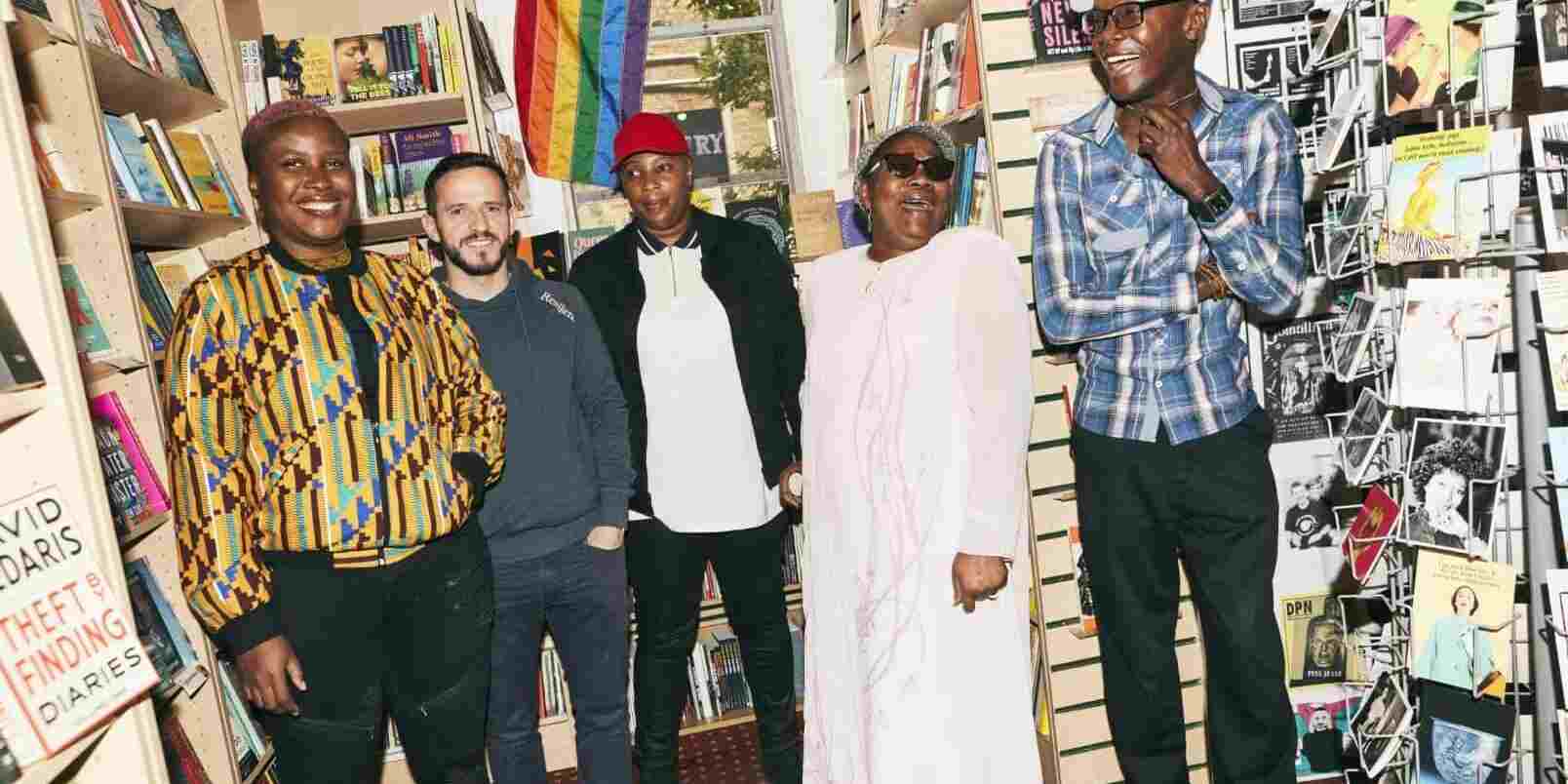
By Ahmed Elmi, this is a summary article – original post can be found at IMIX
To celebrate Pride month, IMIX invited five queer sanctuary seeking people to the world-famous Gay’s The Word bookshop in London’s King’s Cross, to highlight the importance of safe spaces for queer people, and to raise awareness about the plight of LGBTQI+ people who have refugee status around the word. There are still almost 70 countries in the world where it is against the law to publicly identify as LGBTQI+, including roughly 70% of the Commonwealth countries associated with the British Crown. This has sadly resulted in many lesbians, gay, bisexual, and trans individuals having to flee their own countries in order to seek safety.
LGBTQI+ Asylum in the United Kingdom
Of the handful of countries around the world that allow queer people to seek asylum, the United Kingdom is one of them. However, many queer people experience anti-LGBTQI+ hostility in the UK asylum system. For example, there have been vast reports about the procedures queer people are put through when they claim asylum, including humiliating ‘tests’ to see if they are, in fact, homosexual or bisexual, with ‘flamboyancy’ in gay men being used as credible way to discern their sexuality, in some cases. It has been said that there is a ‘culture of disbelief’ in the system when it comes to LGBTQI+ people seeking asylum, as 4 in 10 claimants say that their cases are outright rejected on the basis that they cannot ‘prove’ that they are lesbian, gay, bisexual or trans, or that their life was in danger before they fled. This will further increase as Clause 31 of the Nationality and Borders Bill comes into effect, as it raises the ‘standard of proof’ for queerness.
In recent months the threat to LGBTQI+ asylum in the UK has proved to be even more precarious, with the threat of deportation and detention increasing, as the Government’s Rwanda offshoring scheme becomes a dangerous risk for LGBT people seeking safety in this country. As many campaigners have pointed out, ‘ill treatment’ of LGBT people in Rwanda is still rife.
LGBTQI+ Ambassadors
The ambassadors in this campaign each have a unique experience of the system, as well as escaping some harsh realities in their respective home countries. From fleeing family and community violence to sleeping rough on the streets and being placed in detention, these resilient queer people have a story worth telling. One that reacquaints us with the original ethos of ‘Pride’ and why it still resonates in 2022.
